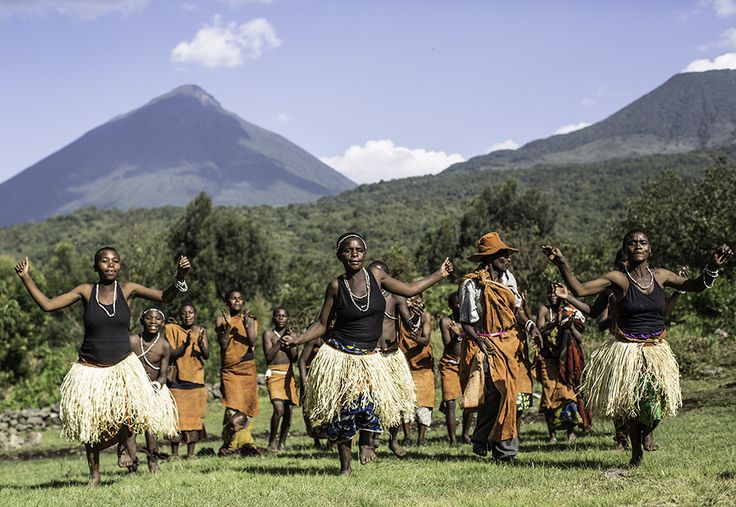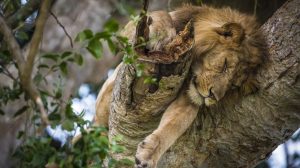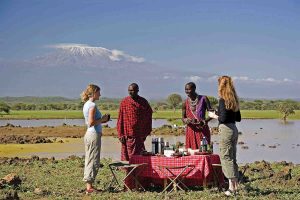When most people think of a safari, the first images that come to mind are lions on the savannah, elephants at a watering hole, or gorillas in a misty forest. Yet behind every safari experience are local communities whose lives are closely tied to wildlife and conservation. Safaris can play a critical role in supporting these communities through employment, education, cultural exchange, and economic growth. How Your Safari Can Support Local Communities
In Africa, many safari companies and lodges are adopting community-based tourism models to ensure that local people benefit directly from tourism. As a traveler, your choices can have a powerful impact on improving livelihoods, reducing poverty, and promoting conservation.
How can my safari benefit local communities?
Your safari can benefit local communities in several ways. Choosing community-owned lodges, hiring local guides, and participating in cultural tours ensures that money from your trip goes directly to the people who live near wildlife areas. Safari companies also invest part of their profits into healthcare, schools, and infrastructure, which improves the quality of life in rural areas.
When local people benefit from tourism, they are more motivated to protect wildlife and habitats. For example, revenue-sharing programs around national parks in East Africa give communities a financial stake in conservation. This means your safari dollars not only provide you with an unforgettable adventure but also help secure a better future for local families. How Your Safari Can Support Local Communities
What are community-based tourism projects in Africa?
Community-based tourism projects are initiatives where local people manage or co-manage tourism enterprises. These can include community-owned lodges, guided tours, cultural centers, and craft cooperatives. For instance, in Kenya’s Maasai Mara, community conservancies provide wildlife viewing experiences while directing revenue to Maasai households. In Uganda, some eco lodges near Bwindi Impenetrable Forest are community-run, supporting schools and healthcare through tourism income. How Your Safari Can Support Local Communities
Such projects empower locals to take ownership of tourism, ensuring that profits are reinvested in their villages rather than leaving the area. Community-based tourism also creates a more authentic safari experience, giving visitors the chance to interact directly with local traditions and ways of life.
How do eco lodges support local people on safari?
Eco lodges are designed to minimize environmental impact while maximizing community benefits. Many are built using local materials and employ local staff for operations, from housekeeping to guiding. Profits are often reinvested into community development projects such as clean water systems, health clinics, and education.
For example, Sabyinyo Silverback Lodge in Rwanda is owned by a community trust, and profits fund development initiatives in surrounding villages. Similarly, lodges in Tanzania’s Serengeti source food from nearby farms, ensuring that tourism revenue circulates within the local economy. By staying at an eco lodge, you are directly supporting jobs and livelihoods.
Why should I hire local guides during a safari?
Hiring local guides enhances your safari experience and directly benefits communities. Local guides bring unique cultural knowledge, storytelling traditions, and a deep understanding of the land. They provide insights about wildlife behavior, local customs, and conservation challenges that you might not get elsewhere.
Economically, hiring local guides ensures income remains within the community. Instead of relying on externally trained staff, lodges that employ locals create sustainable career paths for young people in rural areas. This reduces unemployment and strengthens community engagement in conservation.
Do cultural tours on safari support communities?
Yes, cultural tours are one of the most direct ways to support communities during a safari. Activities such as village walks, traditional dance performances, cooking classes, and storytelling sessions provide income to local families. These interactions also help preserve cultural traditions by passing them on to future generations.
For example, visiting a Maasai village in Kenya or a Batwa community near Bwindi in Uganda allows travelers to experience local heritage while contributing financially to those communities. The fees you pay for cultural tours go toward community projects, ensuring that your safari leaves a lasting positive impact.
How does buying crafts on safari help local families?
Purchasing crafts during a safari is an effective way to support local artisans. Handmade baskets, jewelry, carvings, and textiles provide crucial income for families, especially women who often manage these businesses. Craft sales help communities diversify their income beyond farming and reduce reliance on activities that may harm wildlife.
In Rwanda, for example, the Azizi Life cooperative empowers rural women through basket weaving, while in Kenya, beadwork by Maasai women supports household needs. By buying directly from artisans or lodge gift shops that source locally, you ensure fair compensation and encourage the preservation of traditional skills.
What role do conservation fees play in supporting communities?
Conservation fees and park entrance charges are essential for funding both wildlife protection and community development. In many African countries, a portion of park fees is shared with nearby villages to build schools, health centers, and clean water systems.
For example, Uganda Revenue Authority channels a percentage of gorilla trekking permit fees back to communities surrounding Bwindi and Mgahinga. This creates an incentive for communities to protect gorillas and discourage poaching. When travelers pay these fees, they directly contribute to both conservation and human development.
Are there safaris that include village visits?
Yes, many safari itineraries include optional or scheduled village visits. These visits allow travelers to see daily life, learn about farming practices, and interact with local families. Some safaris also include visits to schools, health centers, or women’s cooperatives supported by tourism.
Village visits benefit communities by generating income and giving locals a platform to share their culture. They also give travelers a deeper understanding of the relationship between people and wildlife in Africa.
How do safaris create jobs for local people?
Safaris are a major sources of employment in Africa. Jobs range from lodge staff and guides to drivers, cooks, and maintenance workers. Local suppliers also benefit, providing food, building materials, and transportation services to safari companies.
Employment opportunities reduce poverty and discourage harmful activities like deforestation or poaching. By creating stable jobs, safaris help communities see wildlife as an asset rather than a threat. This is one of the most powerful ways tourism supports conservation and rural development.
Why is sustainable tourism important for African communities?
Sustainable tourism ensures that safari benefits are long-term and inclusive. Without sustainable practices, tourism can harm wildlife, degrade environments, and exclude local people from its rewards. Sustainable safaris prioritize environmental conservation, community empowerment, and cultural respect.
This model helps communities thrive while protecting Africa’s natural heritage. When you choose a safari operator committed to sustainability, you support an approach that balances economic development with conservation.
Can safari companies fund schools and health projects?
Yes, many safari operators allocate part of their profits to community development projects. These include building schools, sponsoring scholarships, funding health clinics, and providing clean water. For example, some lodges in Kenya’s Laikipia region sponsor education programs, while lodges near Uganda’s Bwindi Forest support medical centers.
By choosing safari companies that highlight their community initiatives, you ensure that your travel directly contributes to social development.
How do local communities benefit from gorilla trekking safaris?
Gorilla trekking safaris in Rwanda, Uganda, and the Democratic Republic of Congo provide significant community benefits. A portion of each gorilla permit fee is distributed to nearby villages. This revenue supports infrastructure projects, clean water programs, and education.
Local people are also employed as porters, guides, and lodge staff, ensuring they benefit directly from gorilla tourism. This community involvement has reduced poaching dramatically, as locals now see gorillas as valuable assets.
What examples of community-run lodges exist in Africa?
Examples of community-run lodges include:
- Sabyinyo Silverback Lodge (Rwanda) – Owned by a community trust.
- Chumbe Island Eco Lodge (Tanzania) – Supports marine conservation and local employment.
- Il Ngwesi Lodge (Kenya) – Fully managed by the Maasai community.
- Rwenzori Turaco View Eco Lodge (Uganda) – Community-owned near Rwenzori Mountains.
These lodges demonstrate how community ownership creates sustainable livelihoods.
Are there volunteer opportunities with communities during a safari?
Yes, some safari itineraries include opportunities for community service. These may involve assisting in schools, helping with conservation research, or participating in reforestation projects. Volunteering allows travelers to contribute directly to communities while gaining meaningful cultural experience. How Your Safari Can Support Local Communities
It is important to choose ethical volunteer opportunities that align with community needs and avoid short-term programs that may cause more harm than good.
How does safari tourism reduce pressure on wildlife and land use?
Safari tourism provides alternative sources of income that reduce reliance on activities harmful to wildlife, such as poaching, logging, or unsustainable farming. When communities earn revenue from tourism, they have financial incentives to protect forests, savannahs, and wildlife populations.
For example, community conservancies in Kenya pay landowners to dedicate land for wildlife use, reducing overgrazing and land conversion. In this way, safari tourism transforms wildlife from a liability into an economic asset. How Your Safari Can Support Local Communities
Conclusion
Safaris are not just about experiencing Africa’s incredible wildlife—they are also powerful tools for community development. By choosing eco lodges, hiring local guides, buying crafts, and paying conservation fees, travelers directly support rural communities. Community-based tourism ensures that locals benefit from conservation and see the value in protecting wildlife. How Your Safari Can Support Local Communities
Every decision you make on safari matters. By supporting local communities, you are contributing to a sustainable tourism model that safeguards both Africa’s people and its wildlife for generations to come.




